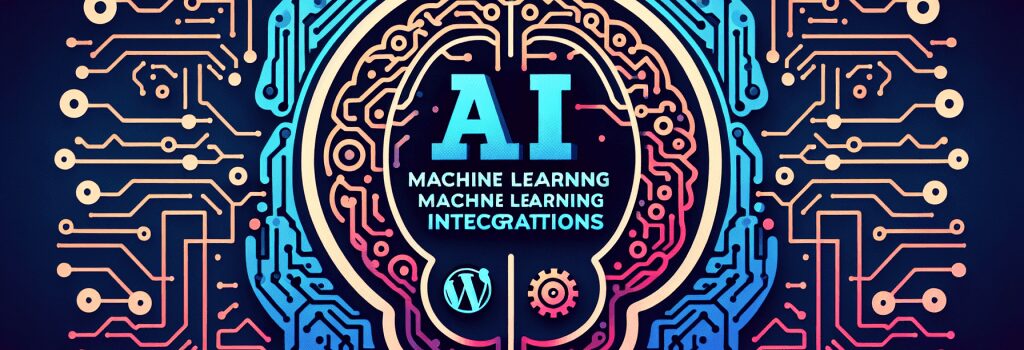Leveraging WordPress API for AI and Machine Learning Integrations

In the dynamic world of web development, the fusion of Artificial Intelligence (AI) and Machine Learning (ML) with established platforms like WordPress opens a vast array of possibilities for enhancing user experiences and streamlining operations. The WordPress API stands as a robust foundation for such integrations, offering developers the tools they need to innovate and push the boundaries of what WordPress can do. This article delves into how developers can leverage the WordPress API for integrating AI and Machine Learning solutions, transforming their websites or applications into smarter, more intuitive entities.
Understanding WordPress API
The WordPress API provides a powerful interface for developers to interact with WordPress in unique and customized ways. It serves as a bridge between WordPress and external software, allowing for data exchange and manipulation across various platforms. With RESTful principles, the API enables developers to create, read, update, and delete WordPress content programmatically, opening a pathway for AI and ML integrations.
Integrating AI and Machine Learning
Integrating AI and ML technologies with WordPress through its API can significantly enhance the website’s capabilities, offering personalized content, intelligent search functionalities, and automated customer support, among other benefits. Here are steps and considerations for successfully incorporating these technologies:
Step 1: Define Your Objectives
Before diving into integration, clearly define what you aim to achieve with AI and ML. Whether it’s automating content creation, providing personalized recommendations, or improving search functionality, having clear objectives will guide your integration process.
Step 2: Choose the Right Tools and Services
Numerous AI and ML tools and services are compatible with WordPress. From language processing libraries like TensorFlow or PyTorch to cloud-based AI services provided by major tech companies, select tools that align with your objectives and are known for their compatibility with the WordPress API.
Step 3: Utilize the WordPress REST API
The WordPress REST API is your gateway to integrating AI and ML functionalities. Understand its endpoints and how to authenticate your requests properly. Whether you’re sending data to an AI service for analysis or retrieving processed information to display on your WordPress site, the REST API is crucial for seamless interaction between WordPress and external AI or ML services.
Step 4: Implement AI and ML Features
Start implementing your chosen AI and ML features. This could involve developing custom plugins that interact with the WordPress API and your AI or ML service, modifying themes to display AI-enhanced content, or even creating new types of content specific to your AI functionalities.
Ensuring Security and Privacy
When integrating AI and ML technologies, always prioritize user data security and privacy. Ensure your implementations comply with relevant data protection regulations and WordPress security best practices. Secure API authentication and data encryption are critical components of maintaining a trustworthy platform.
Exploring the Possibilities
The potential applications of AI and ML integrations in WordPress are vast. Here are a few examples:
– Personalized User Experiences: Analyze user behavior and preferences to deliver customized content recommendations and layouts.
– Intelligent Search Enhancements: Implement ML algorithms to improve search accuracy and relevance based on user queries and interaction patterns.
– Automated Content Generation: Leverage natural language generation (NLG) tools to create dynamic content, reducing manual effort and ensuring freshness.
– Enhanced Security Measures: Use AI to detect and prevent security threats in real-time, protecting your site and its users.
Conclusion
Leveraging the WordPress API for AI and Machine Learning integrations not only enhances the functionality and efficiency of WordPress sites but also significantly improves user engagement and satisfaction. By understanding the WordPress API and carefully selecting AI and ML tools, developers can unlock new potentials in web development, creating smarter, more responsive, and personalized websites. As AI and ML technologies continue to evolve, the possibilities for innovation in WordPress will only expand, making now an exciting time to explore and integrate these advanced capabilities.


